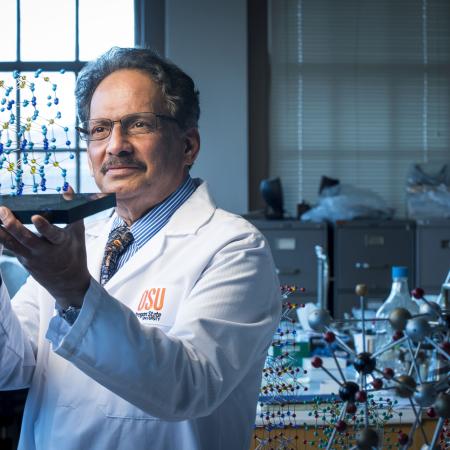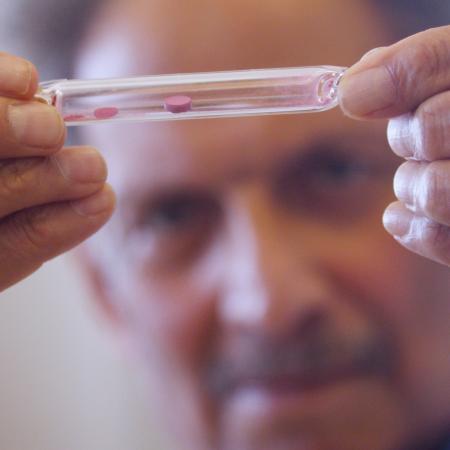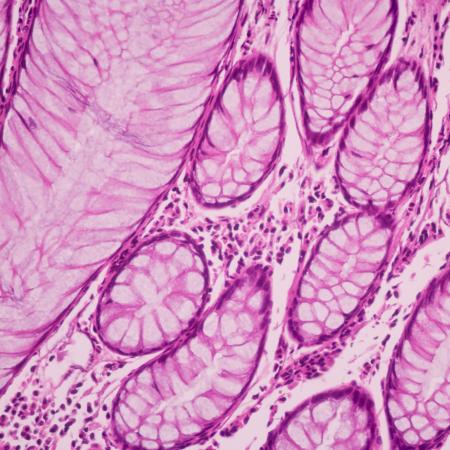The College of Science is proud to announce Douglas Keszler as Associate Dean for Research and Graduate Studies, effective May 16, who joins Julie Greenwood as an associate dean as part of the dean’s leadership team for the College of Science.
Keszler has been a Distinguished Professor in Oregon State University’s Department of Chemistry, an adjunct professor in the Physics Department and the Director of Center for Sustainable Materials Chemistry. He also serves as a member of the Oregon Nanoscience and Microtechnologies Institute (ONAMI) leadership team. Keszler joined OSU in 1984.
“I am very pleased to welcome Dr. Keszler as our Associate Dean for Research and Graduate Studies,” said Sastry G. Pantula, dean of the College of Science.
“Given Doug’s world-class research contributions, I am confident that Doug will have a tremendous impact on the College’s research excellence, collaborations across departments and colleges, mentorship of faculty, industry partnerships and start-ups while increasing the quality, quantity, and diversity of our graduate programs.”
“I know his passion for science, research and excellence will make a positive difference not only in the College, but also at Oregon State and in the scientific community.”
The associate dean supports graduate and faculty research endeavors by identifying and facilitating academic research. This position cultivates collaborative research and large-scale interdisciplinary projects as well as identifies potential industry partners and start-up opportunities for the College of Science.
“I look forward to enhancing a supportive and creative research environment, advancing high quality graduate programs that support broad professional development of students, and enriching the scientific research community at OSU,” said Keszler.
Keszler’s research interests focus on the synthesis and study of inorganic molecules and materials that will enable next-generation electronic and energy devices. His current efforts are directed to understanding patterning processes at the extreme end of the nanoscale and developing computationally-directed methods for realization of high-efficiency solar cells. His pioneering contributions are being commercialized by three start-up companies – Inpria, Amorphyx, and Beet.
Keszler earned his Ph.D. from Northwestern University and his bachelor of science from Southwestern Oklahoma State University. He was a postdoctoral fellow at Cornell University.




